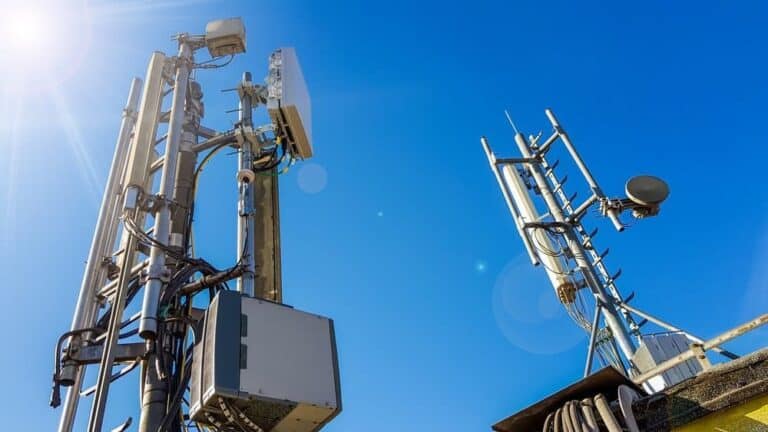American telecoms companies AT&T and Verizon Communication set out to prevent delays in launching new 5G services in the C-band spectrum. In doing so, both telecom operators deny requests from the U.S. Department of Transportation and Federal Aviation Administration to postpone deployment for more safety research.
Recently, several airlines asked the U.S. Department of Transportation and the Federal Aviation Authority (FAA) to request AT&T and Verizon Communication to delay turning on their 5G networks in the C-band frequency around airports.
The airlines are concerned that 5G networks in the C-band frequency can interfere with avionics such as radio signal-based altimeters. Interference can lead to flight delays.
Therefore, Pete Buttigieg (secretary of transportation) and Stephen Dickson (FAA chief) requested AT&T and Verizon Communications to postpone the deployment of 5G networks in the C-band frequency around airports for up to two weeks. A delay would allow for further investigation into interference and the possibility of 5G-free buffer zones around airports.
AT&T and Verizon Communications response
Reuters reports that both telecom companies respond by indicating that the 5G C-band frequency services will be launched as planned. However, the companies are willing to compromise by taking new security measures. For example, they propose switching off 5G C-band frequency signals near airports for six months, stating that the process already happens in France, and is relatively easy to apply in the United States.
Completely eliminating the C-band for 5G services is out of the question for either operator. According to AT&T and Verizon Communications, doing so would put the United States at many disadvantages, stating the threat of lagging behind China’s 5G network.
Furthermore, abandoning the C-band for 5G poses a serious financial threat. Last year, both companies invested heavily in the rights to leverage the frequency. Halting at this stage is nothing short of the destruction of capital.
FAA response
In an initial response to the telecom operators’ proposition, the FAA disagrees with the operators’ arguments. According to the aviation authority, the comparison with France does not hold up. The FAA notes that France has lower signal strengths than AT&T and Verizon Communications’s signals in the States. Furthermore, in France, the usage of the frequencies in question would be further away from airports than planned by the operators in the States.
The FAA stands firm and requests 5G to not be deployed around airports. If the Biden administration does get involved shortly, the FAA says it will go to court to enforce a ban.
